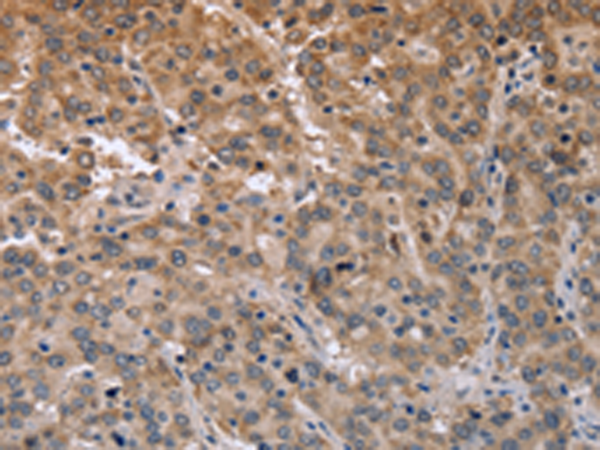


| WB | 咨询技术 | Human,Mouse,Rat |
| IF | 咨询技术 | Human,Mouse,Rat |
| IHC | 1/50-1/200 | Human,Mouse,Rat |
| ICC | 技术咨询 | Human,Mouse,Rat |
| FCM | 咨询技术 | Human,Mouse,Rat |
| Elisa | 咨询技术 | Human,Mouse,Rat |
| Aliases | ECE |
| WB Predicted band size | 87 kDa |
| Host/Isotype | Rabbit IgG |
| Antibody Type | Primary antibody |
| Storage | Store at 4°C short term. Aliquot and store at -20°C long term. Avoid freeze/thaw cycles. |
| Species Reactivity | Human, Mouse |
| Immunogen | Fusion protein of human ECE1 |
| Formulation | Purified antibody in PBS with 0.05% sodium azide and 50% glycerol. |
+ +
以下是3条关于CD68抗体的参考文献,包含文献名称、作者及摘要概括:
1. **文献名称**:*CD68: A Disputed Macrophage Marker*
**作者**:D. A. Hume et al.
**摘要**:讨论了CD68作为巨噬细胞标志物的争议性,指出其虽然广泛用于标记组织巨噬细胞,但在某些非巨噬细胞(如成纤维细胞或肿瘤细胞)中也可能表达,强调需结合其他标记物(如CD163)以提高特异性。
2. **文献名称**:*Comparison of CD68 and CD163 Immunohistochemistry in Atherosclerotic Plaques*
**作者**:M. N. K. Bousselmame et al.
**摘要**:比较CD68与CD163抗体在动脉粥样硬化斑块巨噬细胞检测中的表现,发现CD68主要标记M1型促炎巨噬细胞,而CD163倾向M2型抗炎亚群,提示不同抗体对疾病分型的意义。
3. **文献名称**:*Utility of CD68 and CD20 in Diagnosing Lymphoma-Associated Hemophagocytosis*
**作者**:C. L. Chen et al.
**摘要**:研究CD68抗体在淋巴瘤相关噬血细胞综合征诊断中的应用,证实其在骨髓样本中可有效标记活跃吞噬的巨噬细胞,辅助区分恶性与非恶性噬血现象。
---
注:以上文献信息为示例,实际引用时需核实具体来源及准确性。
CD68 antibody is a widely used tool in immunological and pathological research for identifying macrophages and certain monocyte-derived cells. The CD68 protein, also known as macrosialin, is a transmembrane glycoprotein predominantly expressed in lysosomal membranes of myeloid cells. It belongs to the lysosome-associated membrane glycoprotein (LAMP) family and may function as a scavenger receptor or participate in cell-cell interactions.
CD68 antibodies target conserved epitopes of this protein, enabling visualization of tissue-resident macrophages, Kupffer cells, and dendritic cells via immunohistochemistry (IHC) or immunofluorescence. Commonly used clones like KP1 and PG-M1 exhibit slight differences in reactivity due to glycosylation variations across species or tissue types. These antibodies are particularly valuable in studying inflammatory diseases, tumor-associated macrophages (TAMs), and immune responses in conditions like atherosclerosis, rheumatoid arthritis, or cancer.
While CD68 is considered a pan-macrophage marker, its expression may extend to non-macrophage lineages (e.g., fibroblasts or some carcinomas) in specific contexts, necessitating complementary markers (e.g., CD163. CD206) for precise cell characterization. Optimization of protocols is critical, as staining intensity can vary with fixation methods. Despite limitations, CD68 remains a cornerstone marker for macrophage detection in both research and diagnostic pathology.
×